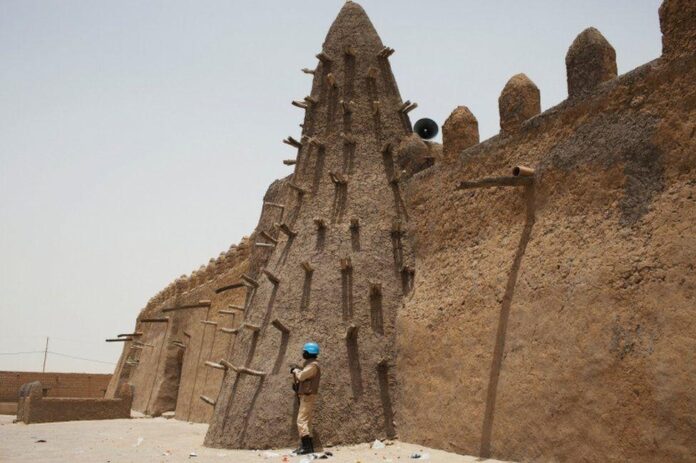THE HAGUE: The fabled shrine city of Timbuktu was reduced to a “shadow of its former self” by extremists, and residents are still living in fear today, the International Criminal Court heard Tuesday.
Lawyers representing 1,946 victims of the year-long extremist occupation of the fabled Malian city stated their case before the Hague-based court, where a Malian extremist police chief is on trial.
Al Hassan Ag Abdoul Aziz Ag Mohamed Ag Mahmoud, 44, is charged by the International Criminal Court with war crimes and crimes against humanity including rape, torture and sexual slavery for his role in the invasion of the city, known as the “Pearl of the Desert” a decade ago.
“Timbuktu was… reduced to a shadow of its former self and this will be remembered for thousands of years to come,” said Seydou Doumbia, a Malian lawyer representing the victims.
“The victims… continue to endure acts of violence — abductions, kidnappings, looting and threats of death,” said Doumbia, speaking via videolink.
“They rub shoulders with death on a daily basis and their persecutors are still in their midst, capable of causing panic at any time,” he said.
Prosecutors say Al Hassan was a key figure in the police and court system set up by the militants after they exploited an ethnic Tuareg uprising in 2012 to take over cities in Mali’s volatile north.
Al Hassan committed “unimaginable crimes,” personally overseeing corporal punishments, including floggings and amputations as well as arranging for women and girls to be forced to marry militants as part of a system of gender-based persecution, prosecutors said.
The extremists from Al-Qaeda in the Maghreb and Ansar Eddine groups also destroyed the centuries-old shrines of Timbuktu.
“The arrival of the extremists in Timbuktu gave rise to great social upheaval. There was a shockwave that was as far reaching as the most remote areas of the region,” Doumbia said.
Al Hassan is the second extremist to face trial at the ICC for the destruction of Timbuktu’s shrines, following a landmark 2016 ruling at the world’s only permanent war crimes court.
In the court’s first case to focus on cultural destruction, the ICC judges found Ahmad Al-Faqi Al-Mahdi guilty of directing attacks on the UNESCO World Heritage site in 2012.
He was sentenced to nine years in jail.
Timbuktu’s tombs were rebuilt after the extremists were thrown out, but the city remains in the grip of insecurity and tourists who once flocked there are now scarce.

